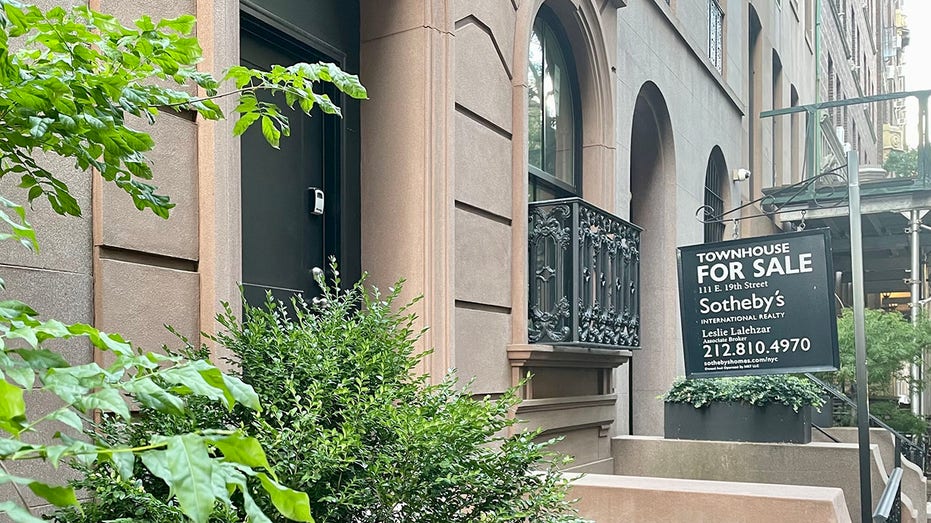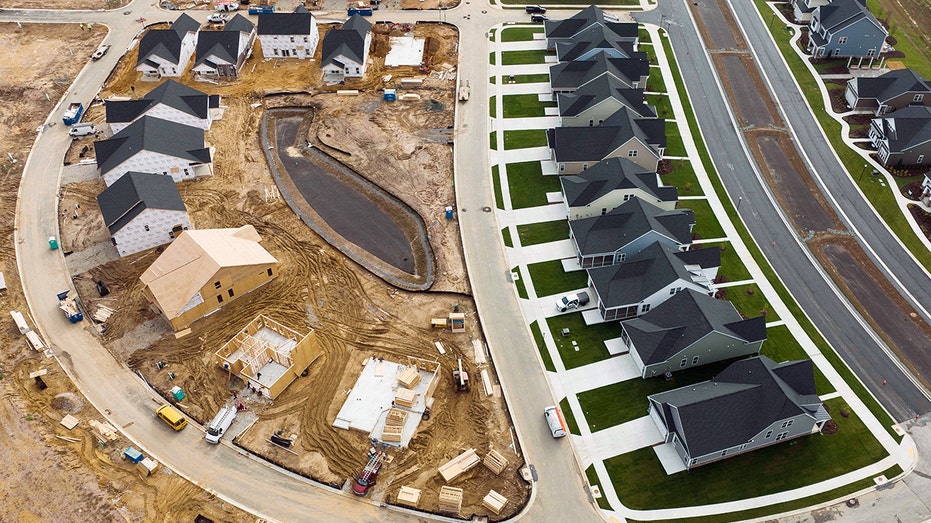Mortgage rates continue to tick down
The 30-year fixed-rate mortgage (FRM) averaged 6.58%
Mortgage rate fears are due to 'uncertainty,' not the increase: Suzanne Miller
Empire State Properties founder Suzanne Miller says housing inventory is building, but prices aren't going down.
Mortgage rates continued downward for a second week, with recent economic data suggesting inflation may have peaked. The Federal Reserve, while still likely to raise rates again in December, has become less hawkish on the extremity of the hikes.
The 30-year fixed-rate mortgage averaged 6.58%, down from 6.61% last week, according to mortgage packager Freddie mac. A year ago, the 30-year FRM averaged 3.10%.
The 15-year fixed-rate mortgage averaged 5.90% also down from last week when it averaged 5.98%. A year ago, the 15-year FRM averaged 2.42%.
Freddie Mac has stopped reporting the 5-year Treasury-indexed hybrid adjustable-rate mortgage (ARM).

Real estate sign in Manhattan in August 2022. (Daniella Genovese/ Fox Business)
LOOKING TO BUY A HOUSE? IT'S THE WORST TIME IN DECADES TO DO SO
"Mortgage rates continued to tick down heading into the Thanksgiving holiday," said Sam Khater, Freddie Mac’s chief economist. "In recent weeks, rates have hit above seven percent only to drop by almost half a percentage point."
While the continued decline in mortgage rates is welcome news, according to Freddie Mac, there is still a long road ahead for the housing market. Inflation remains elevated, the Federal Reserve is likely to keep interest rates high and consumers will continue to feel the impact.

In this aerial view, completed and under construction new homes at a site in Trappe, Maryland, on October 28, 2022. - New home sales in the US dipped in September, official data showed on October 26, 2022, as worsening affordability nudges ownership ((Photo by JIM WATSON/AFP via Getty Images) / Getty Images)
NEW HOME SALES UNEXPECTEDLY CLIMB IN OCTOBER DESPITE STEEP MORTGAGE RATES
Khater continued: "This volatility is making it difficult for potential homebuyers to know when to get into the market, and that is reflected in the latest data which shows existing home sales slowing across all price points."
Freddie Mac's monthly volume survey for October showed its total mortgage portfolio increased at an annualized rate of 1.9% in October.
The single-family refinance-loan purchase and guarantee volume was $4.8 billion in October, representing 18% of total single-family mortgage portfolio purchases and issuances.
Housing bracing for downturn as investors try to get ahead of Fed: Michael Kantrowitz
Piper Sandler chief investment strategist Michael Kantrowitz discusses the health of the U.S. economy and where the housing market heads as the Fed continues to raise rates on 'Mornings with Maria.'
CLICK HERE TO GET THE FOX BUSINESS APP
The Federal Reserve's interest rate hike in November marked the sixth increase of the year. Interest rates heavily effect mortgage rates because the Fed's interest rates are the base borrowing cost for banks.





















